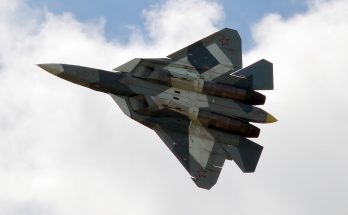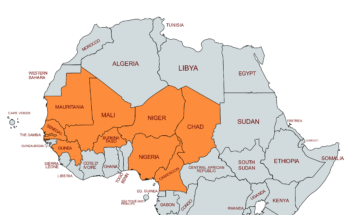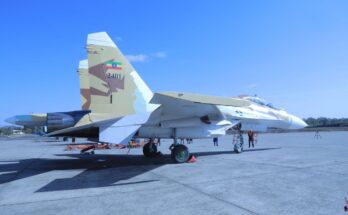Sudan’s new prime minister aims to reduce the country’s bloated defense budget.
In a recent interview with the Associated Press, Sudanese Prime Minister Abdalla Hamdok discussed a number of reforms he would like to see in the country following the removal of long-time ruler Omar al-Bashir earlier this year in a military coup. Among these reforms would be a reduction in annual military spending, which could be achieved by finding solutions to ongoing insurgencies in some parts of the country.
Prime Minister Hamdok noted that Sudanese military and security spending has at times accounted for up to 80 percent of the national budget. Achieving resolutions to internal conflicts could see that figure reduced to around 20 percent, he said, achieving a “peace dividend” for Sudan.
The extraordinarily high levels of defense spending in Sudan enabled the military to continue procurement even as the country’s economic position deteriorated. But by focusing solely on military and security – former President Bashir once famously said that even spending 100 percent of the budget on defense would not be enough to secure Sudan – the Sudanese government neglected to invest in human and economic matters, inhibiting Sudanese development.
At one time, Sudan’s export portfolio consisted almost entirely of energy-related products, but the independence of South Sudan resulted in the loss of much of Sudan’s energy resources. Despite the loss of much of this source of revenue, the government did not focus on reform. The country scores toward the bottom on a range of human development indicators. The World Bank regards Sudan as having a poor environment for business.
The government’s high levels of defense spending also send a signal to insurgents battling the government that the Sudanese security forces remain committed to their military defeat, rather than a negotiated settlement.
The ouster of President Bashir provides an opportunity for Sudan to address the issue of excessive military spending, among other pressing problems, but reform will prove difficult for Prime Minister Hamdok, who was appointed earlier this month to serve as a transitional leader until elections can be held. He said after his swearing-in, “The government’s top priorities are to stop the war, build sustainable peace, address the severe economic crisis, and build a balanced foreign policy.”
In a statement, the U.S., U.K., and Norway welcomed Prime Minister Hamdok’s appointment, noting that the new civilian-led government now “has a unique opportunity to establish peace within its borders, draft a constitution that enshrines human rights protections and empowers all Sudanese, including women and youth, and create the infrastructure for free and fair elections.”
But Prime Minister Hamdok will need to contend with a large security apparatus that will influence policy decisions in an effort to retain power. Since President Bashir’s removal from power, in April of this year, Sudan has been governed by the Transitional Military Council (TMC), comprising key security officials – some of whom played a role in counterinsurgency efforts elsewhere in the country that involved war crimes. Amid a tense standoff with Sudanese civil activists, whose popular pressure helped bring down President Bashir, security forces associated with the TMC carried out a crack-down in early June, resulting in the killing and wounding of hundreds of civilians.
A deal last month between the TMC and a coalition of various opposition movements paved the way for the TMC’s replacement with the Sovereign Council, an authority acting as the head of state led by the TMC’s chairman, Lt. Gen. Abdel Fattah al-Burhan. The body appointed Abdalla Hamdok, an economist with experience working for government and international institutions, as the head of government.
Military markets analyst, covering Eurasia, Middle East, and Africa.




